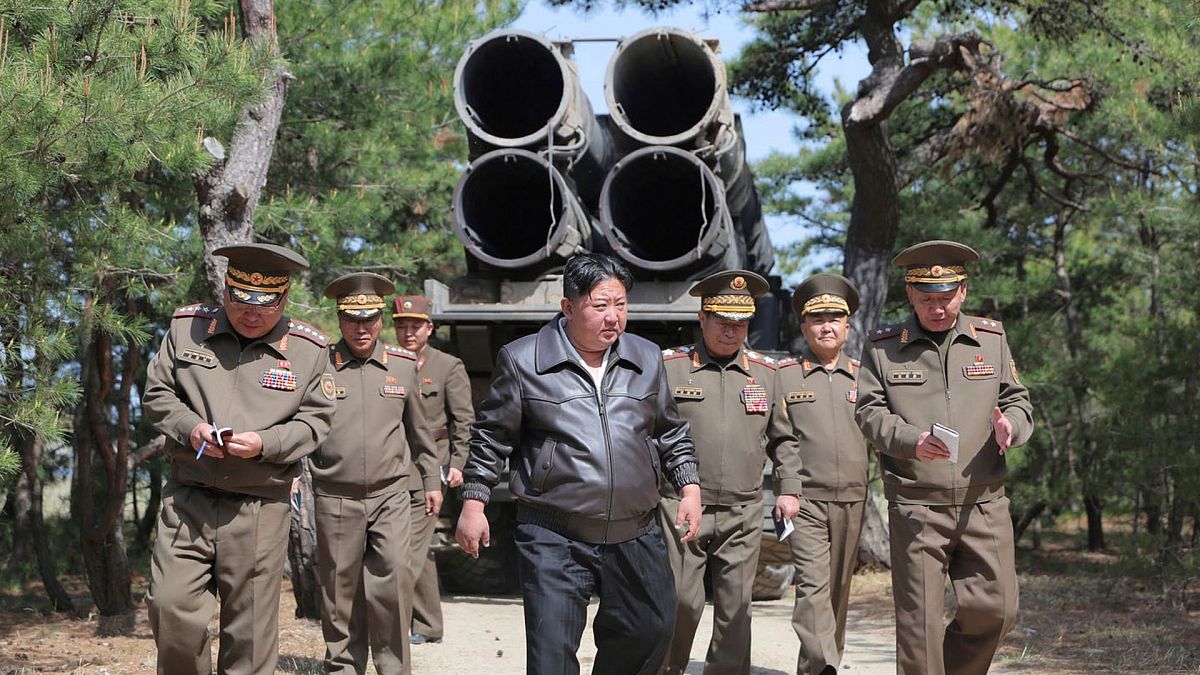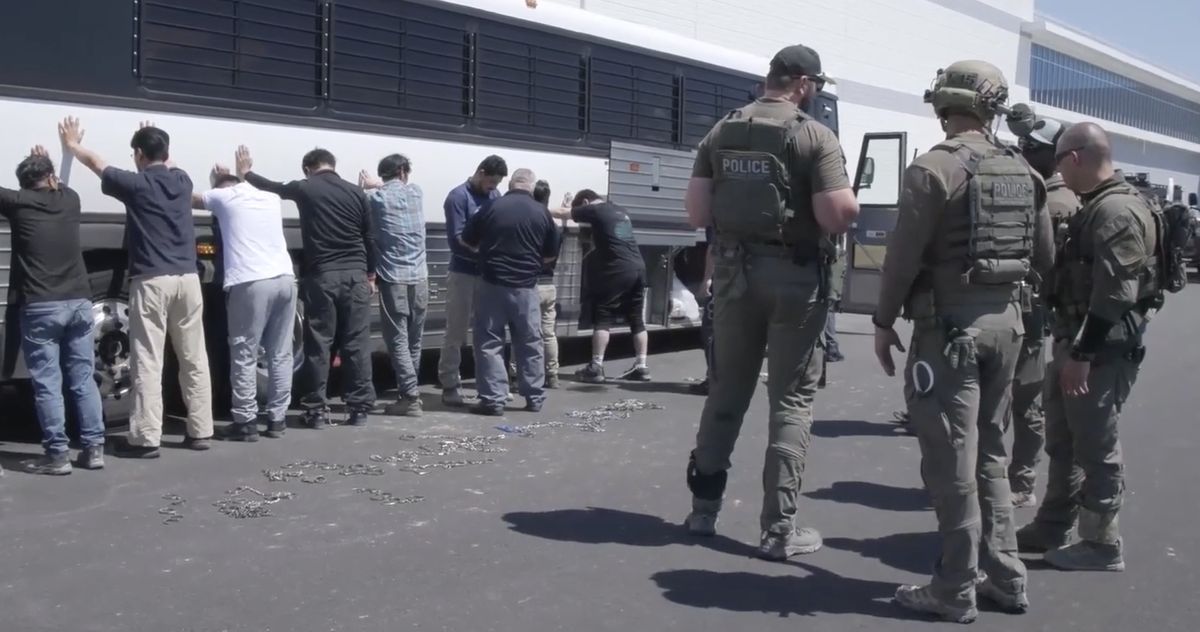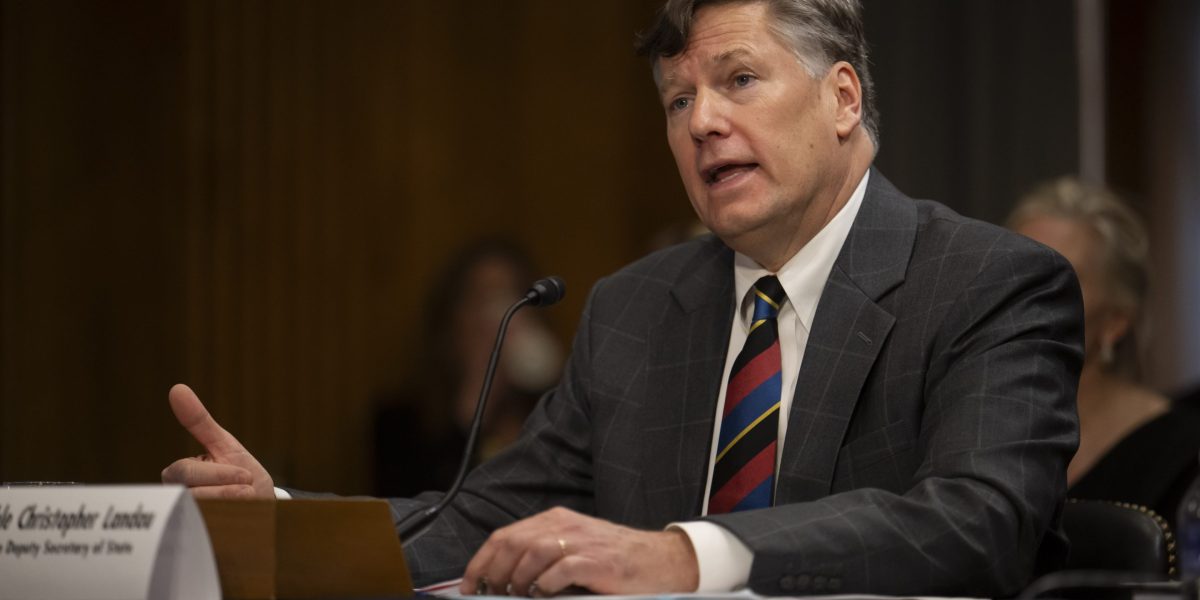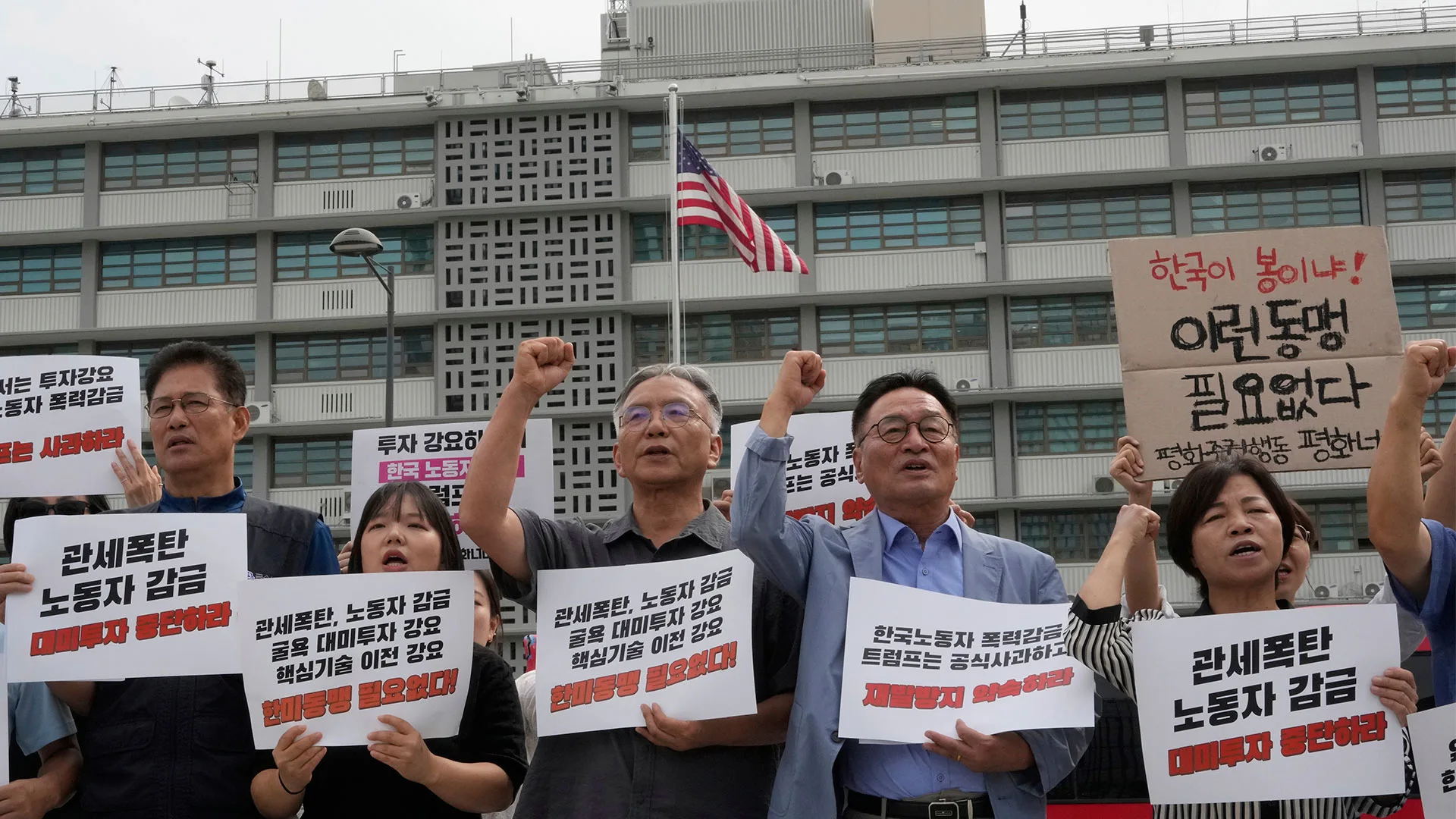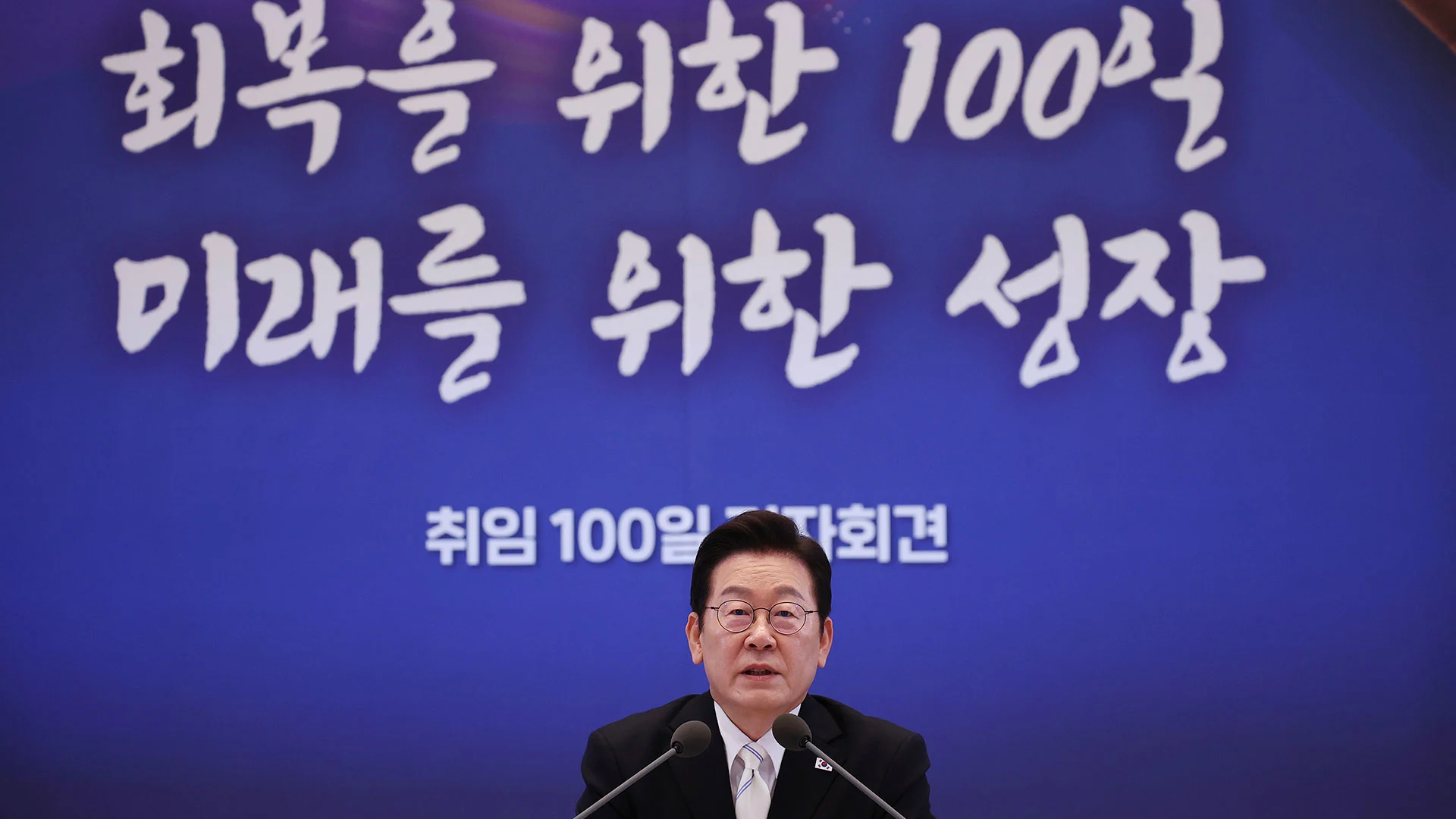#us-south-korea-relations
#us-south-korea-relations
[ follow ]
fromTruthout
3 months agoAfter Hyundai ICE Raid, Even South Korea's Capitalists Question US Relations
These are the details of 316 South Korean nationals' experiences in Immigration and Customs Enforcement (ICE) detention that have flooded the country's media in the weeks after the September 4 raid on a Hyundai-LG electric vehicle battery plant in Ellabell, Georgia. Zip ties. Helicopters. Crowded cells. Guns trained on bewildered workers. Foul water. Forced vaccinations. An unconscious detainee left on the floor by negligent guards.
World news
fromInsideEVs
4 months agoHyundai And Kia Just Can't Win Under Trump
I'm sure that's not a universal opinion, of course. But I met several people who said they think highly of the U.S. as the friends who came to their rescue during their devastating civil war, as a crucial trading partner, and as an ally they're glad has their collective backs with China right in their backyard. I have to imagine their view of the U.S. is one of bewilderment today.
US politics
fromwww.aljazeera.com
4 months agoSouth Korea to send plane for workers detained in US immigration raid
South Korea plans to dispatch a chartered plane on Wednesday to return hundreds of citizens detained in last week's immigration raid in the US state of Georgia, Korean Air has said. Korean Air, South Korea's flagship carrier, said on Tuesday that it would operate a flight to Atlanta, Georgia, to repatriate the workers following their arrest at the construction site of a South Korean-operated electric-vehicle battery plant.
US politics
fromBusiness Insider
4 months agoHyundai has for decades poured billions into America's South. Then ICE rattled its biggest US project yet.
The impact of an immigration raid on a sprawling Hyundai factory on Thursday is reverberating far beyond its home in rural Georgia. The operation, called by one US official the "largest single-site enforcement operation" in history, detained nearly 500 workers, most of them South Korean. It also jolted a company that has poured billions into America's South, helping transform the region into a major global auto manufacturing hub.
World news
US politics
fromwww.mediaite.com
5 months agoWHAT IS GOING ON IN SOUTH KOREA?' Trump Wonders if It's Undergoing Purge or Revolution' Before Meeting With New President
President Trump questioned a possible purge or revolution in South Korea ahead of his White House meeting with President Lee on a proposed trade deal.
[ Load more ]




